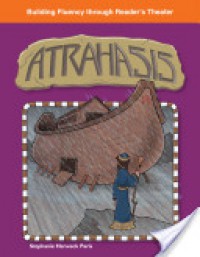More Speculation on the Creation Myths

Now, even though I have already completed a commentary on this book I still cannot help but go over a few more aspects of this story because I feel that there is actually a lot more to consider than meets the eye. It is also very useful to compare with the biblical account, if only to see the similarities. Some would suggest that this book disproves the biblical account, however I generally take a different approach by saying that it actually goes a long way to support it. Others argue that the biblical account was written to counter these creation myths, and that I do not doubt, however we must still consider that the main purpose of the biblical account (as well as the others) is to outline our origins and to explain why the world is in the state that it is in.
First of all there is the creation of man, however it is interesting to note that this does not occur until later in the first tablet (the story is divided into tablets, which are basically the same as pages). Humanity was created from clay (which is the same as the biblical account) however the clay was also mixed with the blood of a dead god and with the spittle of each of the living gods. This, once again, is similar to the biblical account in where God breaths life into humanity thus indicating a divine origin and nature of our race. However, it differs in that the creator is the female god, and that she used a womb as a means of creating humanity. This obviously is reflective of what the ancients originally could see around them, particularly noting that a baby is formed in the womb of a female.
Being an origin myth the Atrahasis also explores the nature of the main Mesopotamian gods, with Anu, Ellil, and Enki dividing the world up amongst them. Anu was given the sky to be his domain, Ellil was given the Earth, and Enki was given the seas. In a way it is similar to the division in the Greek myths, with Zeus taking command over the sky, Hades being given the underworld (namely because the Earth was the domain of humanity) and Poseidon being given the sea. I suspect if we look closer to the Mesopotamian gods we will see a number of similarities with the Greek gods, though we should note that Ellil seems to be the god that has the biggest gripe with humanity while Enki is the one who always seems to step in and protect them.
The final aspect that I wish to explore is the nature of rebellion, something that I have flagged above as being central to the text itself. It appears that the text is really about rebellion and how the gods dealt with humanity's rebellion. This is critical as it provides the link to the biblical account in that the bible is really about humanities rebellion against God, and his response to it (though the Bible is also the story of how God redeems humanity). The interesting thing in the Atrahasis is that there are two rebellions, the first being the Igigi and the later being humanity. While not explicitly stated in the bible, there are a number of hints as to an angelic rebellion. This seems to be the same as the rebellion of the Igigi, however it differs in that the bible is very clear that the rebellious angels were cast out of heaven where as the Igigi's demands were met. Further, note that the Mesopotamian gods were not overthrown. This differs from the Greek myths in that there are also two rebellions, the first being the Titans rebelling against the rule of the old gods, and then the new gods rebelling against the Titans. In both events the rebels won and overthrew their predecessors. This could be reflective of the invasions that occurred over the period of Ancient Greek history known as the Dark Ages. It is quite possible, or more than possible, that the later gods were introduced by the invaders, and that the changes in the heavenly powers is indicative of these invasions.


